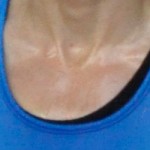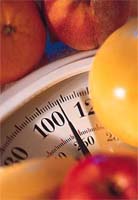With the soaring temperatures this summer you break into a sweat even before you begin to think about going for a run. This article tackles all those sticky sweaty problems.
To avoid hyperthermia (over heating) the human body has to maintain a constant temperature of 37.2°C. We have been cleverly designed with our own personal air conditioning system – perspiration. At the slightest alert 3 million mini-geysers (glands) on the skin’s surface which are controlled by the nervous system, kick into action and set of the sprinkler system which cools the body off on evaporation.
Why do you sweat more when you exercise?
How much you sweat depends on how many sweat glands you have. A person is born with about two to four million sweat glands. The glands start to become fully active during puberty. Women actually have more sweat glands then men – male glands are just more active.
Because sweating is the body’s natural way of regulating temperature, people sweat more in when it’s hot outside. People also sweat more when they exercise, or in response to situations that typically make them nervous, angry, embarrassed, or afraid.
Is there such as thing as excessive sweating?
Humans sweat out about a litre a day, but some can lose up to that in an hour, however that is abnormal.
Excessive sweating (hyperhidrosis) of the armpits, hands or feet affect about one in a hundred people. It is however, not fully known why some people are afflicted with this problem. Some studies show that this is due to highly charged emotions, overweight, stress, fatigue, hormonal changes/endocrine and neural changes.
Why does sweat smell?
Sweat is composed of 99% water and the rest are mineral salts (sodium, potassium, calcium, magnesium, zinc iron, manganese etc.), antibodies, and excretments urea, urates, lactic acid etc. Sweat is virtually odourless but when it gets into contact with bacteria in the warm badly ventilated skin folds it can develop a ripe odour. Some foods such as strong curries, heavily spiced foods, garlic, and heavy drinking can accentuate unpleasant sweaty odours.
Other articles on this subject to follow:
plus other further articles regarding this topic in the planning





























Speak Your Mind